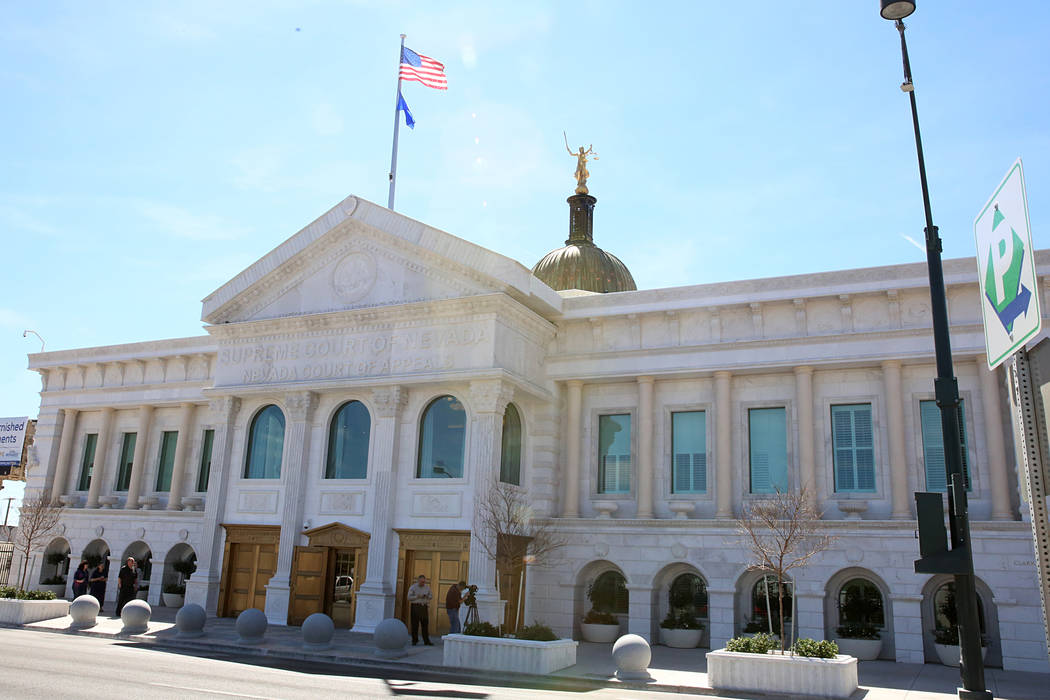State Bar rule against discrimination and harassment shot down

Say a group of male attorneys at a Nevada State Bar Association meeting are drinking, and a female lawyer walks by and one guy makes a vulgar comment about her. She hears him and is offended, or someone else is offended.
Or during a Continuing Legal Education seminar debate on same-sex marriage, an attorney criticizes gays and transgender people.
Or perhaps a lawyer who’s also an instructor of a law school class makes a tasteless joke in class about Muslims, offending someone.
The State Bar of Nevada proposed a rule change to add anti-harassment and anti-discrimination language to its Rules of Professional Conduct — a move that sounded like a good thing. It was designed to eliminate bias and enhance diversity in the legal profession.
The language, taken directly from the American Bar Association rule adopted in 2016, would have made it professional misconduct to “engage in conduct that the lawyer knows or reasonably should know is harassment or discrimination on the basis of race, sex, religion, national origin, ethnicity, disability, age, sexual orientation, gender identity, marital status or socioeconomic status in conduct related to the practice of law.”
Opponents worried that in venues outside the courtroom, such as state bar events or even social events, someone could file a complaint with the bar alleging professional misconduct in situations like the first three examples occurred.
The opponents argued that by saying “in conduct related to the practice of law” the verbal comments cited in the first three examples could open the door to a bar complaint for misconduct against an attorney
The proposed rule was met with intense opposition from national Christian groups, professors and local attorneys. Opponents argued it would be an infringement of their First Amendment right to free speech if the new rule subjected them to a bar complaint if anyone heard their words and filed a misconduct complaint with the bar.
Pulling back
Rather than fight, the bar has caved. For now.
Caving avoided a Monday hearing before the Nevada Supreme Court, where the justices would be asked to say yea or nay, potentially pitting them against free speech advocates and possibly forcing them to tacitly condone sexual harassment and discrimination as a free speech right.
The timing couldn’t be worse as women (and men) are coming forward in hordes complaining of sexual harassment by powerful people in the world of entertainment, journalism and other fields. Harvey Weinstein, Kevin Spacey, Bill O’Reilly, Mark Halperin and Roger Ailes will forever be associated with sexual harassment.
Nevada State Bar President Gene Leverty withdrew the proposal for the anti-harassment/anti-discrimination rule, saying the comments opposing the proposed rule caused “the Board to pause.”
While the language was identical to the ABA language, Leverty told the Nevada Supreme Court the language used in other states was “inconsistent and changing.” He asked to retract the proposed rule change regarding misconduct but reserve the right to refile “when, and if the language sorts out in other jurisdictions.”
I’m not holding my breath. But the bulk of the opposition seems to come from academics such as Eugene Volokh, who fought the ABA rule change without success.
The examples he cites don’t focus on sexual harassment, but instead on the discrimination side.
Several Christian groups, including the Church State Council, a Seventh-day Adventist organization that provides legal advice for those facing religious discrimination, strongly opposed the anti-harassment/anti-discrimination proposal, arguing that it “places the free speech and religion of lawyers at the mercy of State Bar Tribunals.”
The opponents, in my opinion, seem to think the bar has time on its hands. I doubt if any of the first three examples offered would result in bar action. Perhaps I’m wrong.
The Christian Legal Society predicted the rule change “would create ethical concerns for attorneys who serve on nonprofit boards, speak on panels, teach at law schools or otherwise engage in public discussions regarding current political, social and religious questions.”
Most of the opposition focus was on discrimination not harassment. However, the head of the Christian Legal Society wrote, “Nevada attorneys should be free to practice law without the fear of false accusations of discrimination or harassment threatening their livelihood.”
For now, and perhaps forever, the state bar won’t pursue making harassment or discrimination misconduct because of all the “what ifs” raised by opponents using the First Amendment as a weapon.
Nevada lawyers who want to make racist and sexist remarks can just have at it. As some always have.
Jane Ann Morrison’s column runs Thursdays in the Nevada section. Contact her at jane@reviewjournal.com or 702-383-0275. Follow @janeannmorrison on Twitter.